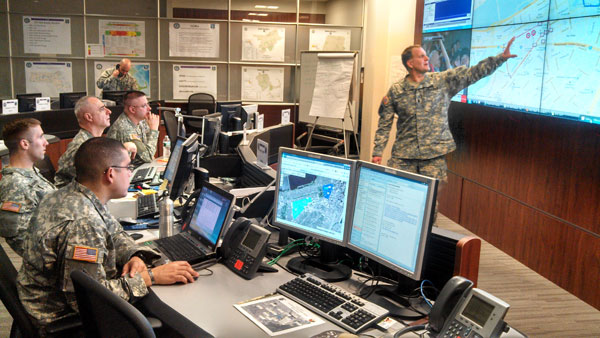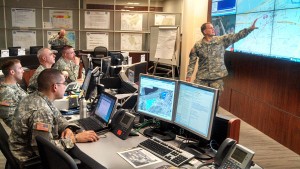Boston hero
When two bombs exploded during the running of the Boston Marathon last April, David Yasenchock ’89, a lieutenant colonel in the US Army Reserve, was called in to coordinate the federal government’s response.


When US Army Reserve Lt. Col. David Yasenchock ’89 finished a year of active duty in Afghanistan in November 2012, and accepted an appointment as the Massachusetts’ State Emergency Preparedness Liaison Officer, he thought the worst situation he might face would be a hurricane or a power outage.
But when two bombs exploded during the running of the Boston Marathon last April, it was Yasenchock who was called in to help coordinate the combined response efforts of the Department of Defense (DoD), the Massachusetts National Guard, the FBI, and several state and civil authorities.
Two hours after the explosions, Yasenchock was in the Joint Operations Center (JOC) at Hanscom Air Force Base. As authorities sought to restore order and searched for those responsible for the terrorist act, it was Yasenchock’s job to ensure that all federal DoD personnel and resources—from bomb-sniffing dogs, to bomb technicians, to Military Police—were equipped and ready to go wherever and whenever needed.
“We had to be very attuned to what we could and couldn’t do because there are laws—the Posse Comitatus Act and the Stafford Act—that stipulate US Armed Forces can’t be used for law enforcement purposes,” Yasenchock said. “We had to be sure that any DoD forces were used to assist the National Guard, and to assist the FBI and other responders during the operation.”
Yasenchock is no stranger to combat or to tense situations. Because of his technical skills and security clearance, he was assigned to the Pentagon War Room in 2003 as the US prepared to go to war with Iraq. He later served near Sadr City, where he helped the Iraqi military rebuild its academy. “It was a bad area and we got attacked a lot,” the Rochester, NH, resident said.
Despite that experience, the Boston bombings were “difficult to deal with” because “this was my own backyard.” He said the hardest part was dealing with the “what-ifs.”
“What if this escalates? What if bombs start going off in other cities? What’s available? How are we going to react? We had to build contingency plans based on those scenarios,” he explained.
Yasenchock was in the JOC when bombing suspect Dzhokhar Tsarnaev was apprehended, and he described the mood in the room at that moment as one of relief. “It wasn’t like Hollywood, where you see everyone cheering. Most of us in that room were in some way combat veterans, and we understood that the situation could have gotten really bad. So there was just a collective sigh of relief.” Twenty-four hours later, he stood down.
Yasenchock, who serves in the Signal Corps, works full time as the chief information officer for the Rochester school system. In October, he received his PhD in computer and information security from Northcentral University. He said his bachelor’s degree in engineering from TCNJ prepared him well for his professional and military careers. And he credits one of his former engineering professors, Joseph Flynn, with imparting on him a key piece of advice.
“He said, ‘When you get commissioned, don’t go in the infantry and don’t go into the artillery. You’re a smart guy. Use your engineering degree.’ And I have.”
Posted on December 11, 2013

